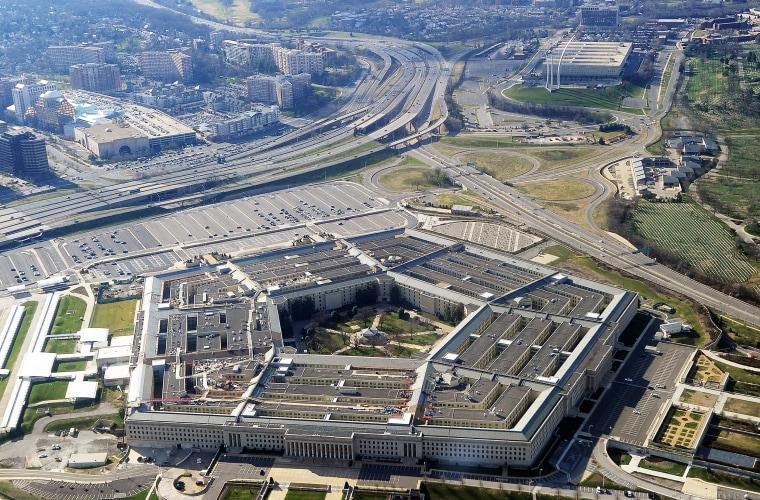In a pivotal moment of reflection and reconciliation, the Pentagon has announced a review of the prestigious Medals of Honor awarded for the infamous Wounded Knee Massacre. This long-overdue examination aims to confront the darker chapters of American history and reassess the appropriateness of honoring those involved in this tragic event. Join us as we delve into this controversial decision and its implications for recognizing the complexities of our nation’s past.
Significance of the Pentagons decision to review Medals of Honor for Wounded Knee Massacre
The Pentagon’s decision to review the Medals of Honor given for the Wounded Knee Massacre is a significant and long-overdue step towards acknowledging the historical atrocities committed against Native Americans. This review signals a commitment to reevaluating the actions of those involved in the massacre and recognizing the need to correct the injustices of the past.
By revisiting the Medals of Honor awarded for the Wounded Knee Massacre, the Pentagon is taking a proactive approach to addressing the whitewashing of history and honoring the memory of the victims. This review is a crucial opportunity to reassess the actions of those involved and ensure that the bravery and sacrifices of Native American individuals are properly recognized and honored.
Historical context of the Wounded Knee Massacre and the Medals of Honor awarded
The Wounded Knee Massacre of 1890 marked a dark moment in American history, as a group of U.S. Army soldiers killed hundreds of Lakota Sioux men, women, and children. Despite the horrific nature of the massacre, 20 soldiers were awarded the prestigious Medals of Honor for their actions that day. These medals have long been a source of controversy, with critics arguing that they were undeserved and that the recipients were actually participating in a brutal massacre of innocent people.
The Pentagon has recently ordered a review of the Medals of Honor awarded for the Wounded Knee Massacre, signaling a potential reevaluation of the actions of the soldiers involved. This move comes as part of a larger effort to reassess the historical context of such awards and to ensure that they truly reflect acts of heroism and valor. The outcome of this review could have far-reaching implications for how we remember and honor the victims of the Wounded Knee Massacre and the soldiers who were involved.
Implications of potentially revoking Medals of Honor for Wounded Knee Massacre recipients
The Pentagon has ordered a review of the Medals of Honor awarded to recipients involved in the Wounded Knee Massacre. This decision comes after years of debate and controversy surrounding the actions of the soldiers during the massacre, which resulted in the deaths of hundreds of Lakota men, women, and children.
If the Medals of Honor are potentially revoked, it could have significant implications for the legacy of those involved in the massacre. It would also serve as a symbolic gesture towards acknowledging the atrocities committed against the Lakota people. However, it may lead to backlash from those who believe in honoring military service regardless of the circumstances. The outcome of this review will undoubtedly spark further discussions on the impact of historical events on present-day recognition and justice.
Recommendations for honoring the victims of the Wounded Knee Massacre in a meaningful way
The Pentagon has recently ordered a review of the Medals of Honor awarded for the Wounded Knee Massacre in order to address the controversial history surrounding the event. As we reflect on ways to honor the victims in a meaningful way, it is important to consider the following recommendations:
- Education: Educate the public about the true history of the massacre and its impact on Native American communities.
- Commemoration: Create a memorial dedicated to the victims of the Wounded Knee Massacre to ensure their stories are never forgotten.
- Reconciliation: Support efforts for reconciliation between the U.S. government and Native American tribes affected by the massacre.
To further honor the victims, it is crucial to engage in open dialogue and collaboration with Native American communities to ensure their voices are heard and their perspectives are valued. By acknowledging the past atrocities and working towards healing and reconciliation, we can strive to create a more inclusive and just society for future generations.
The Conclusion
As the Pentagon embarks on a review of the Medals of Honor awarded for the Wounded Knee Massacre, it is clear that the legacy of this dark chapter in American history continues to provoke reflection and scrutiny. The outcome of this review will undoubtedly contribute to a better understanding and acknowledgment of the complexities of our nation’s past. Ultimately, it is a reminder that history is not static, but rather a living, evolving narrative that demands our attention and interrogation. Only by confronting the truths of our collective history can we move forward with integrity and compassion.


